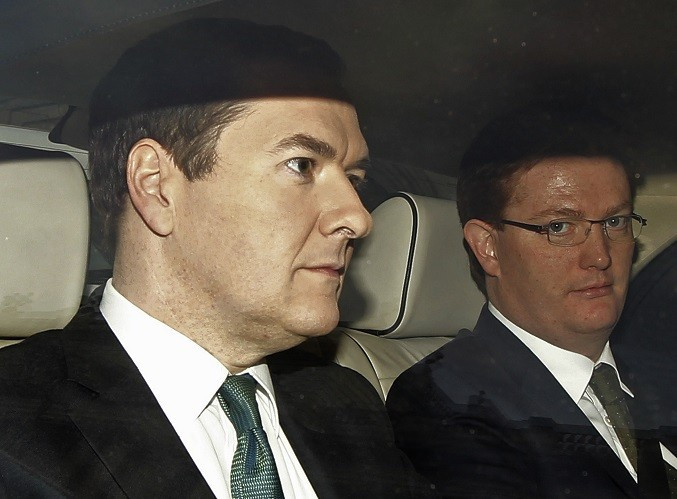Autumn Statement 2013: George Osborne Unveils Glowing Outlook for UK Growth

Chancellor George Osborne declared his economic plan for the UK is working as he unveiled in his Autumn Statement a raft of improving growth and public finance forecasts amid the nascent recovery.
The economy will grow faster than thought over the coming years, debt as a portion of GDP will fall more quickly, and the Treasury will produce a surplus on its budget by the year 2018.
"We need to secure the economy for the long-term and the biggest risk to that comes from those who would abandon the plan," Osborne told the House of Commons.
"We seek a responsible recovery. One where we don't squander the gains we've made, but where we go on taking the difficult decisions."
He added: "We need a government that lives within its means in a country that pays its way in the world."
The Office for Budget Responsibility (OBR) sharply upgraded its UK growth forecasts off the back of the recovery that appears to have taken hold.
It now predicts 1.4% growth in 2013, up from a 0.6% forecast previously. It also revised its 2014 growth forecasts up to a 2.4% expansion, from its past prediction of 1.8%.
Osborne said this is the largest improvement in growth forecasts for any Autumn Statement or Budget in 14 years.
The OBR also said the crash in output between 2008 and 2009, known as the Great Recession which was triggered by the financial crisis, was worse than thought. There was a 7.2% decline in GDP, not 6.3% as previously thought.
Osborne revealed the OBR's deficit forecasts, which had also been improved. The entire focus of the government's controversial austerity programme has been on erasing the structural deficit in public finances.
In 2013, the OBR said the deficit would be 6.8% rather than the 7.5% it forecast before. That is based on public sector net borrowing figures, which exclude windfalls such as the Treasury taking control of the Royal Mail pension plan and coupon payments from the Bank of England's £375bn gilt-purchasing quantitative easing programme.
In 2014 the deficit in public finances would fall to 5.6% of GDP. It would then fall again in every year until 2018 when it would be erased and there would be a small surplus in public finances.
Government borrowing is also down. The Treasury will borrow £9bn less in 2013 than thought. By 2019, the government will have borrowed £73bn less than the OBR forecast in Osborne's March Budget and there will be a surplus.
"If we give up on the plan now we would still be saddled with a deficit that would be among the highest in Europe," Osborne said.
"This side of the house is not prepared to take the risk."
However, Labour's Shadow Chancellor Ed Balls hit back at Osborne's claim his economic plan was working.
"For all their complacent boasts, for most people, in the constituencies for honorable members on all sides of the house, there is still no recovery at all," Balls told MPs.
"As for his promise to balance the books by 2015, didn't he confirm today that in 2015 he's not? He's borrowing £79bn.
"For all his smoke and mirrors he is borrowing £198bn more than he planned in 2010. More borrowing to pay for three years of economic failure. Now we wants us to congratulate him for saying he'll do it in 2019."
© Copyright IBTimes 2025. All rights reserved.






















